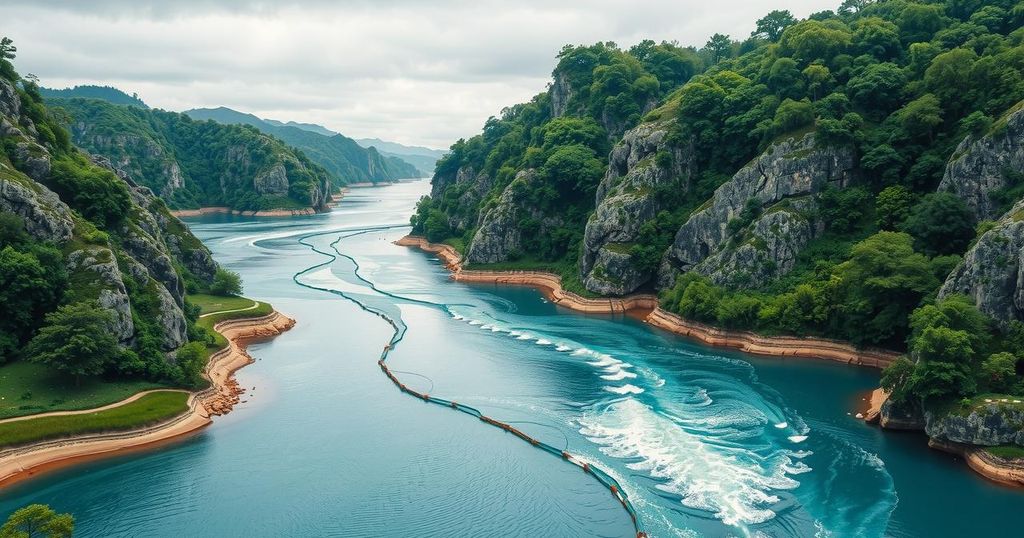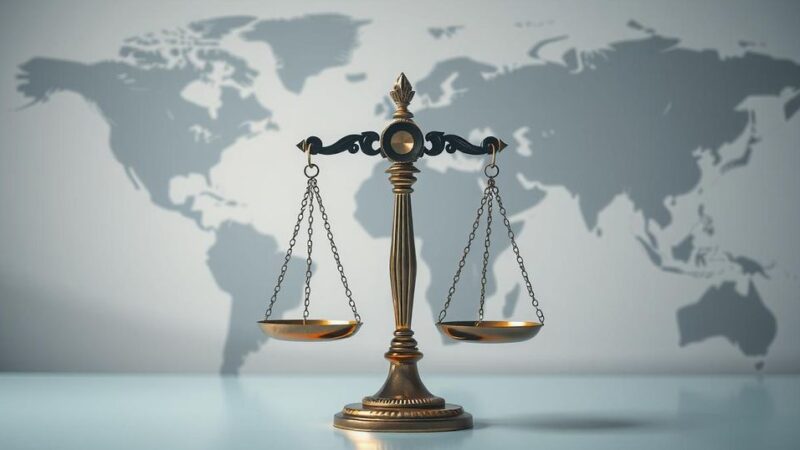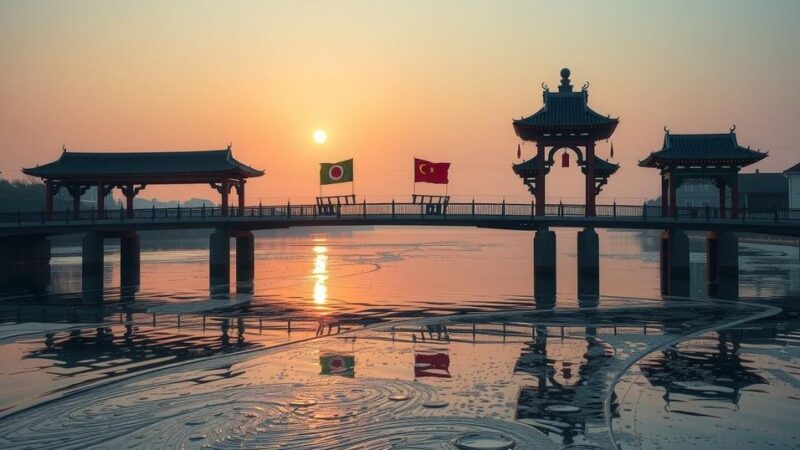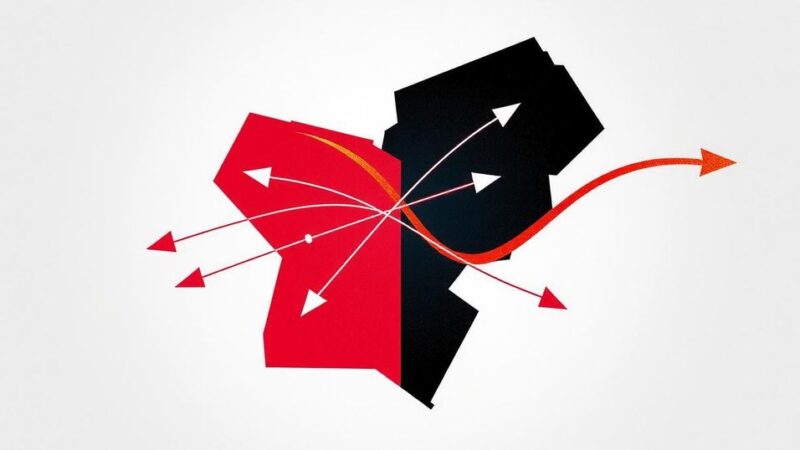The ongoing crisis in the Democratic Republic of Congo involves M23 rebels seizing territory, leading to significant humanitarian and diplomatic challenges. President Félix Tshisekedi seeks to regain control while accusing Rwanda of supporting rebels. Rwanda, Burundi, and Uganda are key players, each with strategic interests, complicating the conflict. South Africa also plays a peacekeeping role amid rising tensions.
The current conflict in the Democratic Republic of Congo (DRC), particularly involving the M23 rebels’ territorial gains in the east, has spurred a humanitarian crisis and intensified diplomatic tensions, compelling neighboring countries to take action. Both the East African Community and Southern African Development Community plan an emergency summit to address this unrest.
President Félix Tshisekedi of the DRC seeks to reclaim lost territories and halt further advances by M23. He accuses Rwandan President Paul Kagame of supporting the rebels through military assistance and urges international intervention, despite receiving only verbal support rather than substantial action. Tshisekedi’s political future is tied to resolving this crisis, with fears of internal insurrection if the M23 continues to prosper.
Kagame’s Rwanda maintains a cautious stance, denying military involvement while stating its right to defend itself against perceived threats from armed groups based in eastern DRC. Rwanda’s agenda includes ensuring that the conflict is recognized as a domestic issue for the DRC, while also protecting its economic interests in the region’s minerals.
In this context, Burundi plays a monitoring role due to its historical tensions with Rwanda and its involvement in the conflict. The Burundian army, having been deployed in eastern DRC to combat detractors, supports Kinshasa against the M23. President Evariste Ndayishimiye articulates concerns over Rwanda’s ambitions, warning of potential warfare spilling into Burundi.
Uganda’s involvement is complex; while its troops assist the DRC government, reports suggest clandestine support for the M23. This dual role heightens tensions as Uganda aims to protect its interests and counter Rwanda’s influence in eastern DRC. Local sightings of Ugandan troops moving toward the conflict zone further complicate the situation.
South Africa contributes significantly to peacekeeping efforts alongside the DRC army. Tensions arose following accusations of Rwandan forces’ involvement in attacks on South African troops, prompting strong reactions from both President Cyril Ramaphosa and Kagame. This marks a contentious divide between the East African Community and Southern African Development Community in their approaches to the DRC crisis.
The ongoing crisis in the DRC exemplifies the complex web of regional politics, with multiple countries pursuing their own interests amid a humanitarian emergency. President Tshisekedi’s challenge to stabilize his government and combat external influences from Rwanda, Burundi, and Uganda underscores the urgency for diplomatic resolutions. South Africa’s peacekeeping role further complicates the landscape, highlighting the differing regional alliances and tensions. These factors collectively indicate that addressing the DRC crisis will require concerted diplomatic efforts involving the multitude of interested states to ensure stability and prevent further escalation.
Original Source: www.bbc.co.uk






